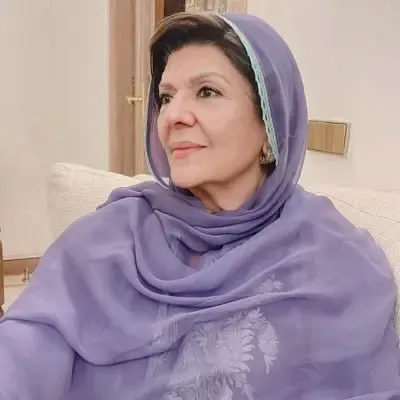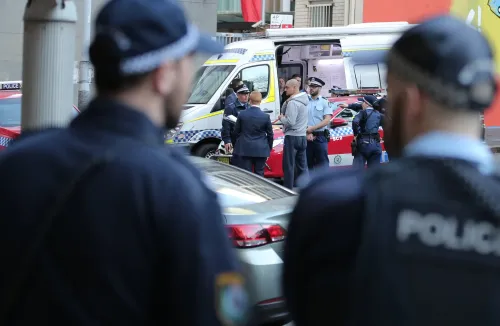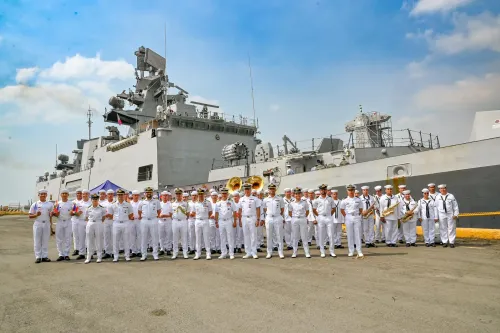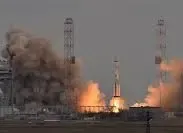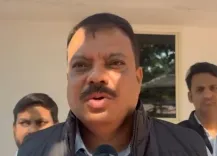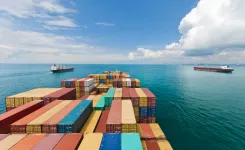How Can We Safeguard Aid Workers in Conflict Zones?
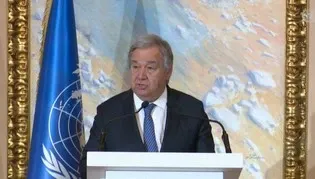
Synopsis
Key Takeaways
- Humanitarian workers are vital for over 300 million affected individuals.
- Record high fatalities among aid workers demand urgent action.
- International laws exist to protect humanitarians but require enforcement.
- Ongoing violence in Gaza poses a significant threat to aid efforts.
- Global leaders must show political will and moral courage.
United Nations, Aug 20 (NationPress) UN Secretary-General Antonio Guterres stated that humanitarian workers, increasingly under threat from violence, serve as the vital lifeline for over 300 million individuals affected by conflict or disasters globally.
“Last year, at least 390 aid workers - a record high - lost their lives worldwide, from Gaza to Sudan to Myanmar and beyond,” he remarked. “International law is explicit: humanitarians must be respected and safeguarded. They should never be targeted.”
In a video address commemorating World Humanitarian Day, Guterres emphasized that while these rules are non-negotiable and obligatory for all conflicting parties, violations occur without consequences, as reported by Xinhua news agency.
“The necessary guidelines and resources exist,” the UN chief noted. “What is lacking is the political will and moral courage to enforce them.”
“An assault on humanitarians is an assault on humanity,” he added.
The UN spokesperson, Stephane Dujarric, highlighted that August 19 has been observed as World Humanitarian Day since 2009 to honor the 22 UN aid workers who were tragically killed during a terrorist attack at the UN headquarters in the Canal Hotel in Baghdad on this day in 2003.
Earlier on that Tuesday, UN Under-Secretary-General for Operational Support Atul Khare, alongside bombing survivors, led a memorial ceremony at the UN headquarters in New York on behalf of the secretary-general, who was visiting Japan.
Tom Fletcher, UN Under-Secretary-General for Humanitarian Affairs and Emergency Relief Coordinator, echoed Guterres' sentiments, stating, “Even a single attack on a humanitarian colleague is an attack on us all and the communities we serve. Such widespread attacks, occurring without accountability, reflect a disgraceful failure of international action and concern.”
The UN Office for the Coordination of Humanitarian Affairs (OCHA) reported that the majority of the killed aid workers were local staff serving their communities, targeted while performing their duties or in their homes. In Gaza, 181 humanitarian workers lost their lives in 2024, the highest globally, while more than 60 others were killed in Sudan.
OCHA stated that in Gaza, 520 aid workers, primarily from the UN Relief Agency for Palestine Refugees (UNRWA), have been killed since the conflict began in October 2023, making it the deadliest region for humanitarians.
Dujarric highlighted that aid workers in Gaza bravely risk their lives to sustain others while facing their own struggles to feed their families. The world cannot turn a blind eye to the routine attacks on these workers and the very people they aim to assist.
“In the last 24 hours, we have received additional reports of casualties from shooting incidents along routes designated for our convoys, where crowds frequently gather to receive supplies from the trucks,” the spokesperson stated.
In the same timeframe, strikes and shelling were reported across five neighborhoods in Gaza City, with reports of advancing tanks and ground forces.
Dujarric pointed out that UN and NGO officials working in the occupied Palestinian territory issued a joint statement on Monday regarding the effects of the intensified offensive in Gaza City, which is expected to lead to mass displacement.
He stated that the UN and its NGO partners will maintain their presence in Gaza City to provide lifesaving assistance as part of their commitment to help communities wherever possible.
“Starvation in Gaza continues, as incoming supplies remain insufficient and do not always reach the most vulnerable,” OCHA remarked, calling for a significant enhancement of private-sector operations and full facilitation of community-based deliveries from various humanitarian organizations, allowing supplies to enter through all available crossings, including directly into northern Gaza.

